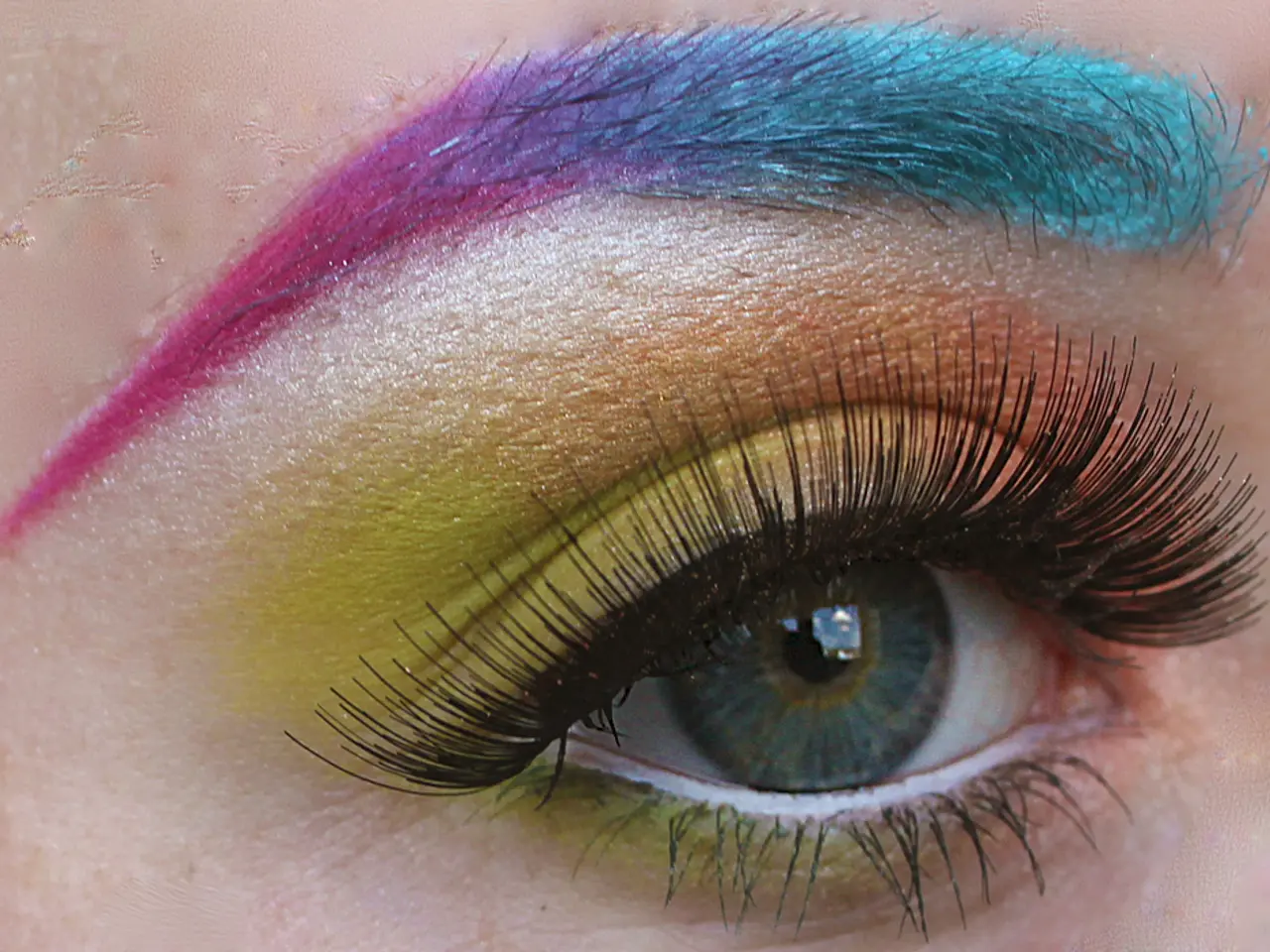Eye Infection Signs: Recognizing Early Symptoms
Understanding Conjunctivitis: Early Signs, Symptoms, and Treatments
Conjunctivitis, commonly known as pink eye, is a common eye condition that can affect people of all ages. Here's what you need to know about its early signs, symptoms, and treatments.
Early signs and symptoms of viral conjunctivitis typically include redness, watery eyes, itching or burning sensation, sensitivity to light, and a feeling like something is in the eye. It usually starts in one eye and can spread to the other. The discharge is usually watery and clear, with rare pain or blurry vision.
On the other hand, early signs and symptoms of bacterial conjunctivitis include red eyes with a thick yellow or green pus-like discharge, eyelid swelling, and crusting around the eyelids, especially upon waking. The discharge tends to cause the eyelids to stick together. Pain or irritation may occur, and the infection can affect one or both eyes.
Treatments for viral conjunctivitis generally involve supportive care because it often resolves on its own within 7–14 days. Recommended treatments include cold compresses to reduce inflammation, artificial tears for soothing irritation, strict hygiene to avoid spreading the infection, and antiviral medications if the cause is herpes simplex virus (less common).
Treatments for bacterial conjunctivitis focus on eliminating the infection using prescription antibiotic eye drops or ointments, gentle cleaning of the eyelids with warm water to remove discharge, avoiding contact lenses until the infection clears, and most improve within a few days of starting antibiotics.
It's important to contact a doctor as soon as possible if experiencing red eyes, pain, sensitivity to light, or blurry vision. People who wear contact lenses should avoid wearing them until the conjunctivitis clears and use a new pair of lenses. People should also avoid wearing eye makeup while the eye heals and throw away any old makeup.
People with a medical condition that weakens the immune system, such as cancer or HIV, may wish to contact a doctor regarding their pink eye. If symptoms do not improve with home remedies, a doctor may prescribe topical or oral medication. Treatment for other conditions depends on the specific condition.
In summary, viral conjunctivitis presents with watery, itchy eyes and usually resolves without antibiotics, while bacterial conjunctivitis causes thicker discharge that responds to antibiotic therapy. Both require good hygiene to prevent spread. If you suspect you have conjunctivitis, it's best to seek medical advice to ensure proper diagnosis and treatment.
[1] Mayo Clinic. (2021, January 11). Conjunctivitis (pink eye). Retrieved from https://www.mayoclinic.org/diseases-conditions/conjunctivitis/symptoms-causes/syc-20351791
[2] NHS. (2021, March 18). Conjunctivitis. Retrieved from https://www.nhs.uk/conditions/conjunctivitis/
[3] American Academy of Ophthalmology. (2021). Conjunctivitis. Retrieved from https://www.aao.org/eye-health/diseases/conjunctivitis-pinkeye-fact-sheet
[4] Cleveland Clinic. (2021, February 11). Conjunctivitis (pink eye): Symptoms, causes, and treatment. Retrieved from https://my.clevelandclinic.org/health/diseases/17159-conjunctivitis-pink-eye
[5] MedlinePlus. (2021, January 14). Conjunctivitis. Retrieved from https://medlineplus.gov/conjunctivitis.html
- Aq solutions may provide relief for dry eyes, a common skin condition that can sometimes impair eye-health.
- Diabetes type 2 can lead to numerous health-and-wellness issues, including an increased risk of certain medical-conditions, such as Alzheimer's disease and blindness.
- Predictive science holds promise for early diagnosis and more effective treatment of conditions like Crohn's disease, asthma, and obesity.
- Maintaining good mental-health is essential for overall health-and-wellness, as mental-illness can exacerbate the severity and duration of skin-conditions like acne and psoriasis.
- Health-and-wellness education and resources are crucial for preventing and managing conditions like hepatitis, macular degeneration, and degenerative mental diseases such as Alzheimers.
- Proper hygiene practices can help prevent the spread of viral and bacterial infections, such as pink eye, influenza, and foodborne illnesses.
- Obesity is a significant risk factor for several medical-conditions, including diabetes, heart disease, and certain types of cancer, requiring careful management for optimal health-and-wellness.
- Diet, exercise, and stress management are essential components of a comprehensive health-and-wellness plan for managing conditions like high blood pressure, depression, and chronic pain.
- Science continues to uncover links between mental-health and various physical health-and-wellness issues, further emphasizing the importance of holistic care and integrated treatment approaches.
- It is crucial to seek medical help for symptoms such as redness, pain, or blurry vision, as these could indicate serious medical-conditions like conjunctivitis, glaucoma, or even brain or neurological diseases.




